+1 (626) 250-3166
|
We are excited to showcase our many aquaponic projects at Phnom Penh Houseplant! Our friends at Jungle à Domicile and the Overseas Cambodia Investment Corporation (OCIC) are co-hosting the event at the Connexion Convention Center on Koh Pich (Diamond Island) over the weekend (July 5-7). Come and meet us there to learn from our 10 years of experience in aquaponics and enjoy the stands of 60 other vendors & exhibitors.
Come find the next member of your plant family at home and discover our upcoming home aquaponic systems for the first time in Cambodia. The event also has several food vendors, so why not come by and have a quick bite?
Our team will be delighted to connect with you and share the stories of the villagers who use aquaponics to make their homesteads more resilient to the adversity of climate change, droughts, and other challenges. As part of this event, Community First is proudly introducing its social enterprise initiative called “Angkor Aquaponics,” which will release home systems, host workshops, and publish online classes to support its social work in rural Cambodia.
If you can’t make it but want to learn more about these exciting developments, consider subscribing to our mailing list, which will keep you updated and connected with us. This exhibit was made possible with our donors' generous support, for which we are thankful. Please consider donating today if you want to join them in their effort!
At Community First, our mission is to sustainably create local solutions to the global problems of poverty by building bridges and creating a dialogue between those with intellectual, financial, and other essential resources and those with needs. Of course, this involves the support of foundations and donors, but today, we want to celebrate another type of contributor: our volunteers! Since 2015, our organization has been blessed with an ongoing relationship with the students from The University of Edinburgh’s Engineering Department. For the past eight years, they have sent our way a team of 4-5 dedicated volunteers over the summer. And while this was put on hiatus during the COVID shutdowns, we’re delighted to have resumed this program this past summer, as are the students! Don’t take our word for it; here are Cathal Callan’s own words on his time at the farm school in rural Cambodia. Volunteering in Rural Cambodiaby Cathal Callan In the summer of 2023, I spent 6 weeks volunteering with the NGO Community First in Kralanh District in rural Cambodia. I traveled as part of a team of four engineering students from the University of Edinburgh’s Engineering For Change Society. The aim of our trip was to complete the construction of a new aquaponics system in a local village and develop Community First’s Farm School campus. Aquaponics is a sustainable farming method that combines small-scale fish farming with hydroponic plant cultivation. Fish produce nutrient-rich waste in water which is transported by gravity through a filter and then into plant beds containing gravel. This nutrient-rich water runs through the gravel plant beds, eventually reaching a sump tank beneath. The water is then pumped back into the fish tank, and the cycle repeats. Aquaponics is a very useful agricultural system, as it yields up to three times the crops per square foot on average compared to typical soil culture. It is particularly effective in rural Cambodia, where the rainy and hot seasons make growing vegetables in the ground difficult. Aquaponics systems can operate year-round and provide local families with food, both fish and vegetables, to eat and to sell for profit. By doing so, these systems help tackle the major problems of malnutrition and food security; 30% of children in Cambodia suffer from stunting as a result of malnutrition. In addition to the construction of a new system in the village of Angkul, the team carried out construction work to help develop the Community First Farm School campus. Two new areas were paved, and an underground drainage pipe was installed in order to help prevent the site from flooding in the rainy season. Two overgrown sections of the farm were cultivated and transformed into new pineapple patches with over 150 plants. A new sugarcane patch was planted too. The team also created a User Manual to give to families receiving a new aquaponics system. This contained all the information required to operate the system, such as how to care for the fish, identifying nutrient deficiencies in the plants, and dealing with pests. It was written in both Khmer and English. On our days off, we had the opportunity to travel around Cambodia. We visited the capital, Phnom Penh, Siem Reap, Sihanoukville, and the spectacular island of Koh Rong Sanleom. We also saw the UNESCO World Heritage Site of Angkor Wat and the beautiful Phnom Kulen National Park. It was important for the team to understand the impact that the Khmer Rouge regime had on Cambodia, so we paid a visit to The Cambodian Genocide Museum – a very emotional and chilling experience. I’m extremely grateful for the opportunity to volunteer in Cambodia. I gained an insight into the environmental challenges of this developing country and gained invaluable hands-on experience, and developed my skillset. It was amazing to witness the social and economic benefits of aquaponics systems in a local community that faced challenges surrounding food and financial security. Living and working in a local community was an enriching experience, although at times it was challenging. We were exposed to many aspects of a local culture vastly different from our own and shared our wooden hut with mosquitoes and big spiders! Despite these stark differences in local culture, I loved every minute of my time in Cambodia. I am grateful to the Community First team - Romain, Nimol, Mab, Moeun & Rayouk – who welcomed us with open arms and taught us so much, including some of the Khmer language and Cambodian cuisine! We left Cambodia with lifelong memories and a deep appreciation for this beautiful country and its people. Like this content? You can read more stories from the students of the University of Edinburgh, Engineering on their blog using these links: Are you a student or young adult wanting to add such an experience to your resume? Contact us directly through this website, or reach out to us on social media! We are always looking for highly motivated young people to share our community development and aquaponic experience with them.
Join us in person for drinks and appetizers or virtually on October 15 to celebrate Community First's achievements in rural Cambodia! From Seed to Plate with Aquaponics: A Story of Cambodian Resilience in Uncertain Times Friday, October 15, 2021 - 5 to 8 PM (Pacific Time) San Marino, California The pandemic was particularly difficult for developing countries like Cambodia, where people lost jobs and have little resources. Community First was able to continue its work of providing support to the villages, and their families have been grateful. Now it is time to say thank you to all the Friends of Community First who helped us continue to serve the people of Cambodia who need it the most. Please join us Friday, virtually, or in-person on October 15 from 5 to 8 pm at one of our board member’s lovely home in San Marino for appetizers and drinks in an outdoor setting. We will share friendship and celebrate the continuing programs of Community First with a short video and a chat with our team at our farm in Cambodia. This event is free and can be attended virtually via Zoom. RSVP is required to get the address of our event or the Zoom link based on your ticket purchase. Space is limited, so make sure to get your ticket today!
It is our great pleasure to announce that our very talented resident photographer and videographer, Ms. Aurelie Fischer has her artistic work on exhibit at Penh Art Fair. While Aurelie has been documenting our work in the villages and produced many videos on aquaponics, she has also been pursuing her artistic endeavors in Cambodia during the pandemic. Most notably, she has explored the area of Kampot where salt is harvested. Her excursions in this beautiful part of the Kingdom have resulted in the creation of a series of photos documenting this trade and exploring the theme of reflection. Her unique perspective is beautifully expressed in an article on her in the French-language magazine "Camdoge Mag". In the article, she shares the following: “What if Alice were to lose herself in wonderland?” “A spoon half emerged in a glass of water appears to be bent as it meets the water’s surface. We know that this is due to light refraction, which affects the way light is reflected at the surface. But this distortion is just an illusion. We can therefore think of there being two spoons: the real one that is straight, and its reflective image that is bent.” She continues by exploring which of the two spoons are real? They both exist in the same world, but through water, they offer a different perception of reality. She invites viewers to explore this idea of the duality of this reflection between reality and illusion, and the difference between the world of imagination and reality. Her artwork explores this theme through the lives of the salt harvesters of southern Cambodia, where the lives can be seen reflected through the prism of water, just like the spoon. The exhibit is open to the public through reservation only until June 27 in Phnom Penh. You can visit the Penh Art Fair website here to schedule a visit, and visit her website here. We encourage our supporters to discover and support Aurelie Fischer’s artwork, as it will help her continue other humanitarian endeavors here in Cambodia. You can also follow her on Instagram @ake_fischer
It's Giving Tuesday! And we have so much to be grateful for. We've had a terrific event earlier this month, and thanks to the generosity of our supporters, we were able to raise over $8,000 and auctioned off 14 art pieces by the very talented Aurelie Fischer! These funds will directly impact the lives of the people we serve in rural Cambodia, by empowering families through food security and economic development.
What's more, we're happy to share with you our latest video which walks you through the construction of our family aquaponics systems in rural Cambodia. These food systems empower families to provide better nutrition for their children, in a country where 40% of them have their growth stunted because of malnutrition (learn more). These systems are also a new source of income for many families, as they help us grow a variety of superfoods and health teas that we help them sell at a profit. Check out our newest video and learn how we build our food systems:
But we're also very excited to share with you our brand new e-shop, where you will be able to find our unique merchandise themed around aquaponics and traditional Cambodian arts. You will also find on this e-shop our first-ever book, containing beautiful pictures of rural Cambodia and our work, as well as a few stories. It's a great read for all ages, and a great way to support and share our work!
As the year-end approaches, you can make a donation on our website. Did you know we also have a Corporate Matching Program? Consider looking up your employer with our convenient tool below to double your impact! Or, you may want to support our work at no cost to you by taking care of your holiday shopping on Amazon Smile for the benefit of our organization.
By Pierre Mainguy and Katie Pieschala As the COVID-19 pandemic has swept across the world, it has wreaked havoc on food supply chains and availability. Over the next year, global poverty is predicted to make an exceptional rise; in the US, while farmers in Idaho dump thousands of pounds of potatoes they have no buyers for, millions of people wait in snaking food bank lines. Pierre Mainguy, founder of Community First, recently sat down with Professor Michael Roberts, Executive Director of the UCLA Resnick Center for Food Law and Policy, to discuss food insecurity in the time of coronavirus. A leader in his field, Roberts has authored multiple leading texts on the subject of food law and recently led a partnership between the Resnick Center and the United Nations Food and Agriculture Organization (FAO). According to a study published by University of Illinois researchers, over a quarter of the world’s population is food insecure, lacking access to safe, affordable food that will promote healthy growth [1]. While the traditional image of hunger is starvation, in fact, food insecurity takes a myriad of forms: many of the food insecure people across the world today rely on cheap, highly processed foods that lead to obesity and malnourishment. The complexity of food systems and regulations, both locally and internationally, is a major barrier to combating food insecurity. Multiple governing agencies, sometimes with competing interests, are often responsible for the same sectors. Roberts describes the famous example of pizza regulation in the US: “If it has meat on it, is it regulated by the FDA or the USDA? Well, it actually depends on how much meat. If it’s 2% or more then it's regulated by the USDA”. Here in LA County, one of Community First’s bases of operation, food insecurity and malnutrition often takes the form of food deserts, geographic areas that, while sometimes packed with fast food, offer little to no fresh produce and healthy options. As Roberts notes: “It’s one thing to go to the farmers market in Santa Monica, here in Southern California, and enjoy a bountiful row of wonderful foods to buy and take home and eat and enjoy the local produce. It’s another thing to go to South Central LA and not have access to those kinds of foods. At least affordable access. And all you have is maybe a fast-food restaurant or gas station food to buy”. Moreover, in LA and in the US at large, food insecurity often exists along racial fault lines. A recent study found that, during the COVID-19 pandemic, rates of food insecurity are nearly twice as high for Black households with children as for White households with children. Similarly, Hispanic respondents are food insecure at a rate 60% higher than their White counterparts [2]. Through this biased food system, lacking in affordable, healthy food, historical legacies of poverty, and discrimination manifest themselves as obesity, diabetes, and heart disease. In northern rural Cambodia, where Community First primarily works, issues of food insecurity are even more prevalent and impactful. As a nation, Cambodia was devastated by the Khmer Rouge regime in the 1970s, which left a quarter of the population dead and destroyed centuries of traditional knowledge. Decades later, Cambodia is still in the process of redevelopment and continues to experience the economic and social aftershocks of the regime. According to the United Nations’ UNICEF, 40% of Cambodian children are stunted from malnutrition, a condition that leads to poor cognitive development, decreased motor abilities, and an increase in risk for chronic nutritional disorders in adult life [3]. In a quickly growing country with the majority of the population under age 30, the physical and mental effects of stunting imperil both individual lives and the economic and political health of the nation. The COVID-19 pandemic has further pressured the struggling Cambodian food system. Travel restrictions have caused unprecedented job loss for the migrant agricultural workers who provide a major source of economic support for their families. In Thailand, where many northern Cambodian villagers seek work, “international remittances decreased from $361 billion in March 2020 to $286 billion in April” [4]. While rural Cambodia suffers greatly from malnutrition, it also offers hope for worldwide food insecurity solutions. Community First’s longtime relationship with the villages of Sen Sok, paired with the low costs of research and development in Cambodia and the nation’s strong NGO culture, makes the rural north an ideal place to pioneer aquaponics technology as a weapon against hunger. As Roberts notes, “the local communities can be incubators, innovators” that successfully model Community Agricultural Systems that can be adapted across the globe, whether in the food deserts of Los Angeles or the villages of Sen Sok. Read the full transcript here:
References:
[1] https://www.ncbi.nlm.nih.gov/pmc/articles/PMC7347484/ [2] https://www.ipr.northwestern.edu/news/2020/food-insecurity-by-race-ethnicity.html [3] https://www.wearecommunityfirst.org/stunting.html [4] https://www.jstor.org/stable/pdf/resrep25010.pdf?ab_segments=0%252Fbasic_SYC-5187%252Ftest 5/12/2020 COVID19 & Food SecurityThe COVID19 pandemic is exacerbating an issue that we have worked on for over ten years now: Food Security. Where we work in Cambodia, this issue has translated into an alarming situation in which 40% of Cambodia's children have their cognitive development and growth stunted. That is why our work on aquaponics has been so important there, as it provides a source of protein and income for families while preserving water. But in the age of a new pandemic, these features resonate deeply in people's minds. And not only for the families we serve half a world away, but also here at home, in the minds of the people that support our work. Accordingly, we are launching an effort to provide help in the villages while also bringing our aquaponic training program online for the masses. The communities we serve are certainly extremely exposed, but everyone in the world is facing the same uncertainty. "On April 21, the United Nations projected that because of COVID19, the number of people facing severe food insecurity worldwide could double to 265 million. The same week, in the United States, the five-week total of job losses rose to a staggering 26 million, pushing millions more into food insecurity." Source: Center for International Strategic & International Studies. While Cambodia has had a low count on COVID19 cases, the tourism industry, which represents a good third of its GDP, has taken a severe hit. Ticket sales for Angkor Wat fell over 99% last month compared with the same time the previous year. As a result, many remain unemployed with absolutely no other safety net than their families. This is why many people return to their village, where food may be scarce, but at least some can always be found. In rural Cambodia, where our team and the people we serve live, many rely on foraging and fishing, like they would in the face of other hardships. Not so long ago, many had to rely on the forest for food while fleeing the turmoil and violence of war. This situation lasted much longer than most realize, as Cambodia did not fully find peace until the 1990s. But today, we are learning that a pandemic can put just as much strain on the supply and value chains that govern people's food security. Here in the United States, farmers in Idaho are duping potatoes that cannot find buyers. During that same week, the San Antonio Food Bank, Texas was struggling to meet the demand. The recently published Global Nutrition Report (2020) highlights the global nature of the problem quite well, stating that malnutrition is the "leading cause of death and ill-health in the world." The report further explains that a large part of the problem relates to access to healthy foods, such as fresh produce and lean protein sources. These findings may be troubling, but they arguably make aquaponics a great solution to address these problems when thousands of families lined up for distributions. These times may be challenging and uncertain, but it is essential to remember that many social innovations have been born in difficult times. And examples abound from the financial institutions dating back to the Great Depression, to the technologies that made our world more environmentally sustainable during the two Oil Shocks. In that spirit, we want to bring together the communities we serve in Cambodia with their supporters and backers around aquaponics & food security. Join us in this effort by helping raise the resources necessary to get the seeds and other essential supplies to those who need them the most in Cambodia! As you help us achieve our goal, you will be supporting a family (or more!) while giving our team of trainers the tools they need to bring their knowledge online. As part of this campaign, we will also be releasing short-form videos, a virtual visit of our campus, as well as a short web documentary. We are happy to share in this post the very first installment of the short-form series. Aurélie Fischer, a professional photographer & videographer who decided to stick around in the villages during the pandemic, produced this content. We are very grateful for her courage and talent! More content from her and our team is coming up soon! Sources & Further Reading:
Community First and its board of directors are delighted to announce that President Pierre Mainguy and Chief Operating Officer and Director of Research & Development Romain Rak have been jointly nominated for a Rotary Humanitarian Award in the “Knowledge Sharing” category for their achievements in bringing aquaponics to remote communities in Cambodia. Over the past years, they have brought together their respective skills to create sustainable food systems to fight off malnutrition and empower families economically. The project has been receiving a great deal of attention from Rotary Clubs worldwide as it addresses all six areas the Rotary International Foundation has strategically decided to focus on: promoting peace, fighting disease, providing clean water, empowering/saving mothers and children, supporting education and growing local economies. The Rotary Humanitarian STAR (Science, Technology, Aerospace, Robotics) Awards, recognizes outstanding scientific and technological achievements with significant humanitarian benefit. Its purpose is to honor and bring to light achievements to support, advance and inspire humanitarian accomplishments. The Rotary Club of Sierra Madre in conjunction with other Rotary clubs, embodying the pursuit to serve humanity, offers the Rotary Humanitarian STAR Awards. Throughout the years, the award has recognized people like Larry Sanger, who is credited with creating and enforcing many of the policies and strategies that made Wikipedia possible during its formative years, Jim Marggraff, nominated for his lifelong learning and development, improving the human condition through Virtual and Augmented Reality and Dr. Mihri Ozkan for her new battery technology for electric vehicles which uses organic matter and inexpensive, abundant renewable resources. Perhaps the most notable laureate of the award is Frances H. Arnold, PH.D., Professor of Chemical Engineering, Bioengineering and Biochemistry at CalTech. Her recognition at the Rotary STAR Awards was shortly followed by her winning the Nobel Prize in Chemistry for "the directed evolution of enzymes," according to the award citation. Directed evolution, pioneered by Arnold in the early 1990s, is a bioengineering method for creating new and better enzymes in the laboratory using the principles of evolution. Today, the method is used in hundreds of laboratories and companies that make everything from laundry detergents to biofuels to medicines. Enzymes created with the technique have replaced toxic chemicals in many industrial processes. Read the New York Times article here. Community First is honored to have its leaders be nominated for such a prestigious award and is grateful for the support of its donors who empowered them to bring local solutions to the global problems of poverty with aquaponics. This nomination would not have been possible without your support. The Fourth Annual Rotary Humanitarian STAR Awards will be held on February 6, 2020 at University Club in Pasadena, located at 175 N Oakland Ave., Pasadena, CA 91101, from 5:30pm-9pm. Tickets include “Meet the Scientists”, reception with free drinks, followed by the banquet and Awards ceremony (which includes talks by award recipients).
Did you know that over 40% of children in Cambodia have their growth stunted by malnutrition? This means that almost half of the children there have their cognitive and motor development impaired because their mother was unable to provide adequate nutrition in the prenatal and neonatal stages of her infant’s life. This statistic from UNICEF has earned Cambodia a spot on the United Nation’s list of alarming countries, as stunting in the long-run also has immense and lasting health repercussions on populations. You can learn more about the phenomenon of stunting with this World Health Organization video: This is why District 5300 and Community First, an international nonprofit based in Pasadena have joined forces this Rotary year to spread a solution that empowers mothers in rural areas to produce bountiful and nutritional harvests all year long. This is made possible through the innovative farming techniques of aquaponics. Aquaponics is an agricultural system that brings together the best of fish farming and vegetable gardening with using as little water as possible, using a hydroponic system. By farming this way and without using soil, villagers are able to produce crops for their own subsistence or to sell at local markets. Mrs. Tap of Smach village explains that she and her fellow aquaponic farmers were the only ones able to farm during the dry season. Her vegetable sales were so successful she was able to finance a small truck which she will use to bring her harvest to neighboring villages. This one-of-a-kind project helps the people of Sen Sok, Cambodia preserve their water through the drought while allowing the most vulnerable farmers to meet their subsistence need or create a small business. But perhaps most importantly, it helps provide a source of better nutrition which empowers mothers to provide better nutrition to their children, allowing them to reach their full potential. Community First has been working in Sen Sok and Cambodia for the past 10 years. During that time it has raised $1.3 million dollars and has impacted the lives of over 20,000 people by giving them access to clean drinking water, continuing education and helping provide almost a million school lunches in rural Cambodia. Today, Community First’s aquaponics program in rural Cambodia is so successful that it has a waiting list. This is why the organization is teaming up with Rotary District 5300, its International Committee and local youth groups in order to help equip 100 families with their own systems and train them. In order to do so, Rotary Clubs and other service groups are invited to donate or help raise or crowdfund $2,000 per family, which will provide for a greenhouse, an aquaponic system, and support and training from the Community First team for a year. This effort was fast-tracked last week when over $10,000 worth of scholarships for new aquaponic trainers were sponsored at Community First’s fall fundraiser at the Valley Hunt Club in Pasadena, CA. These new trainers will be able to teach the skills and techniques mothers will need to successfully farm throughout the drought and build a successful business from their aquaponic system. In this video, you can meet Mab, our head trainer who will be in charge of teaching the new trainers: These aquaponic systems can be seen and fully experienced at the Huntington Library, Art Museum and Botanical Gardens in San Marino, CA every Saturday at the Ranch’s open house from 10 AM to 1 PM. Community First uses this demonstration site for educational purposes with local schools but welcomes the general public as well, so come and learn how about climate change resilience and food security with us! For all inquiries and having this project presented at your service Club, school or other institution, please contact us through this website. GOWING FURTHERLearn more about the issues Community First is working to address with this video from the World Health Organization (WHO) on malnutrition and stunting and our latest video on aquaponics in Cambodia: Stunting is largely irreversible: a child cannot recover height in the same way that they can regain weight. Stunted children fall sick more often, miss opportunities to learn, perform less well in school and grow up to be economically disadvantaged, and more likely to suffer from chronic diseases. 8/1/2019 News from the farm school!It’s an incredibly productive summer at the Community First farm school in Sen Sok. As with the past five years, we had the pleasure of hosting a volunteer team from the University of Edinburgh, Engineering. Thanks to our donors and supporters, we were able to build three additional family systems in the village of Angkaol and people are excited to get started growing vegetables and raising fish year-round! Families are farming Chinese cabbage and morning glory for their own consumption, and the Tap family has started making some money from their cucumber farming. Thanks to our drought-resistant systems, they’re able to sell their crop for $2.50 per kilogram at the local market! The Rath family, on the other hand, has been able to feed their family which includes seven children by focusing on the aforementioned fast-growing crops. Whether a family seeks to be economically empowered or the ability to feed themselves year-round in a country where 40% of children have their growth stunted because of malnutrition, our aquaponic systems get the job done! In addition to expanding our outreach program, we were able to expand the farm school’s main aquaponic system. Thanks to the support of the Rotary Club of San Marino, we were able to build concrete fish tanks that will bring our overall capacity from 2,700 liters to 20,000 liters! Volume aside, the fact that these brand new tanks are compartmentalized also means that we will be able to diversify the fish farming side of our aquaponic activities. We’re eager to experiment with new species like prawns and crayfish to change things up a bit. These aquatic animals being bottom feeders will also play a role in keeping our water clean. The rosenbergii variety of freshwater prawn is actually found throughout the Mekong river and is considered a delicacy here in Cambodia. If you want to get involved, you can help by becoming a sustaining donor. $30 a month helps us fund our introductory training program for a family while $50 per month will us lift families out of subsistence and into abundance with advanced training. $75 per month helps us coach farmers like the Tap family to turn their aquaponic activity in a small business. Consider becoming a donor today and become a patron of social innovation and climate change adaptation! If you’d like to learn more and are based in the greater Pasadena area, consider visiting our demonstration system at the Huntington Library and Gardens in San Marino. Our team is there every week at the Ranch’s open house on Saturdays from 10 AM to 1 PM (learn more).
|
||||||



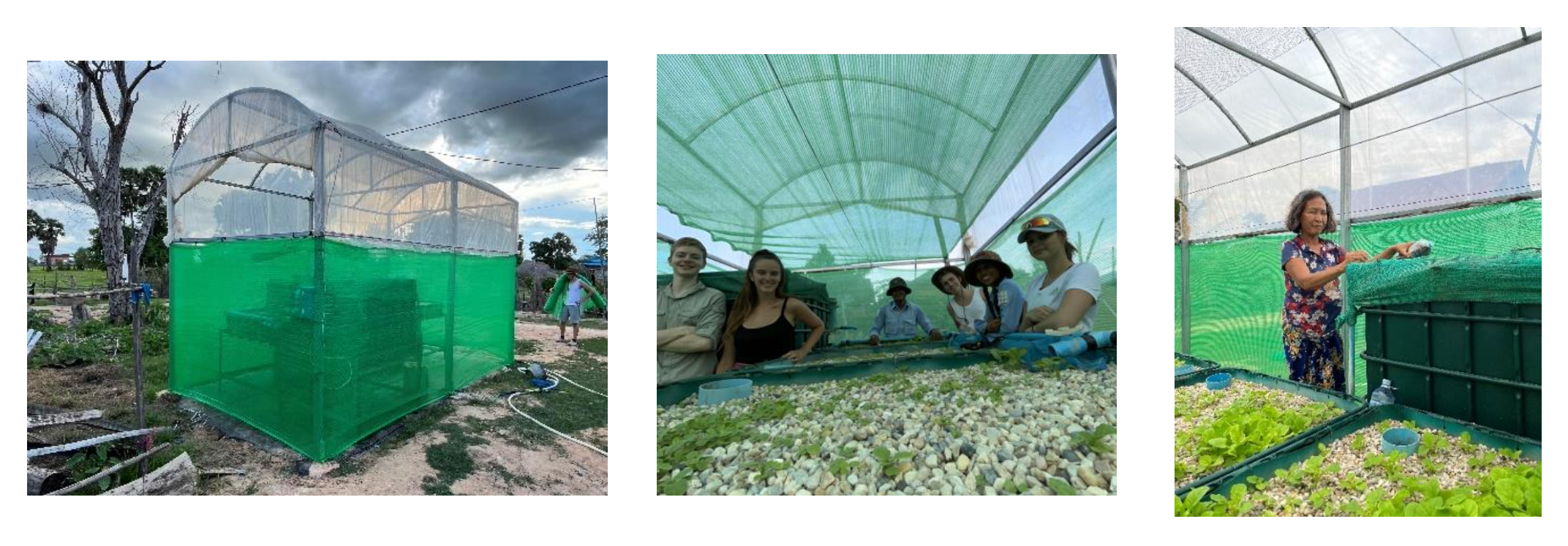
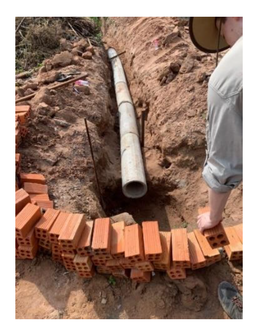
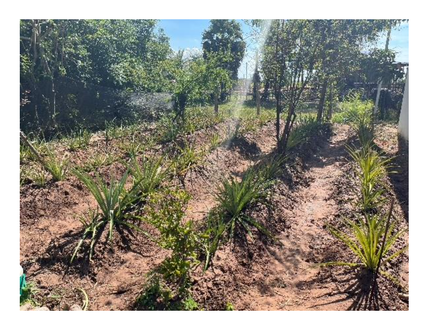
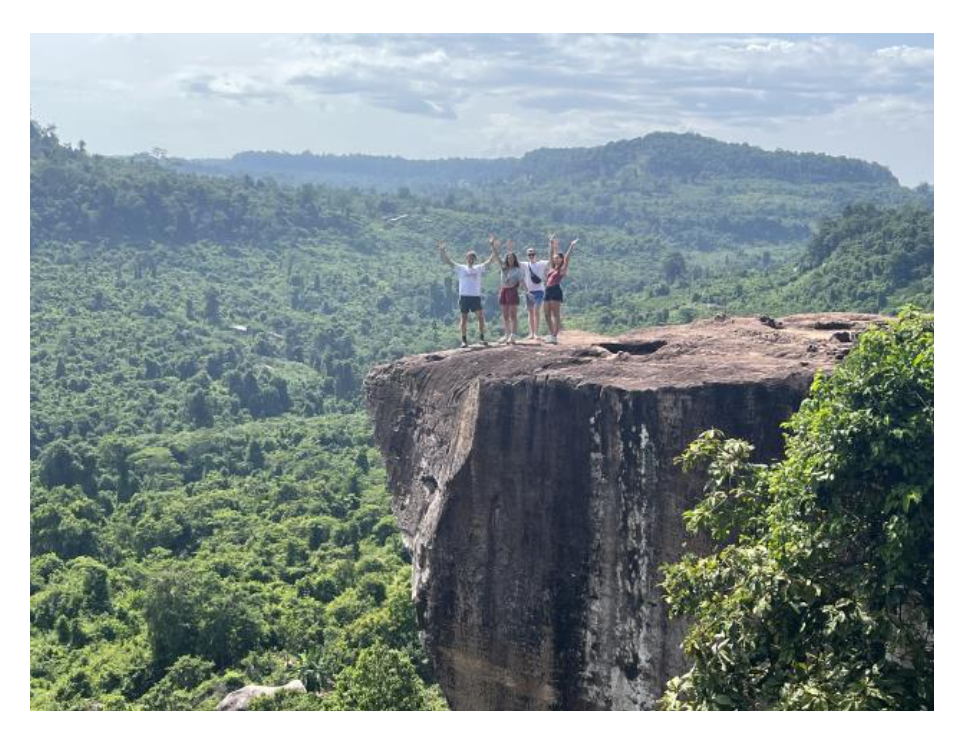
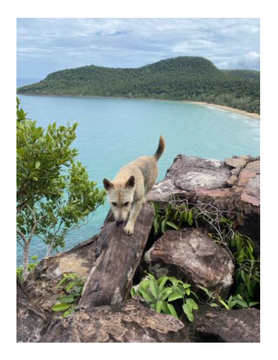
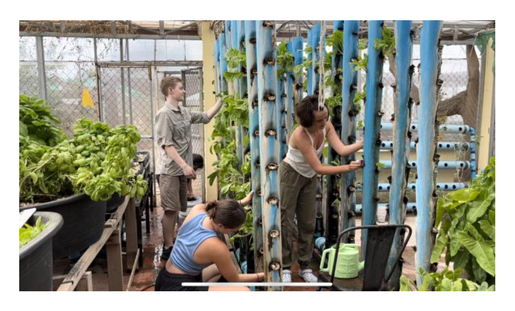
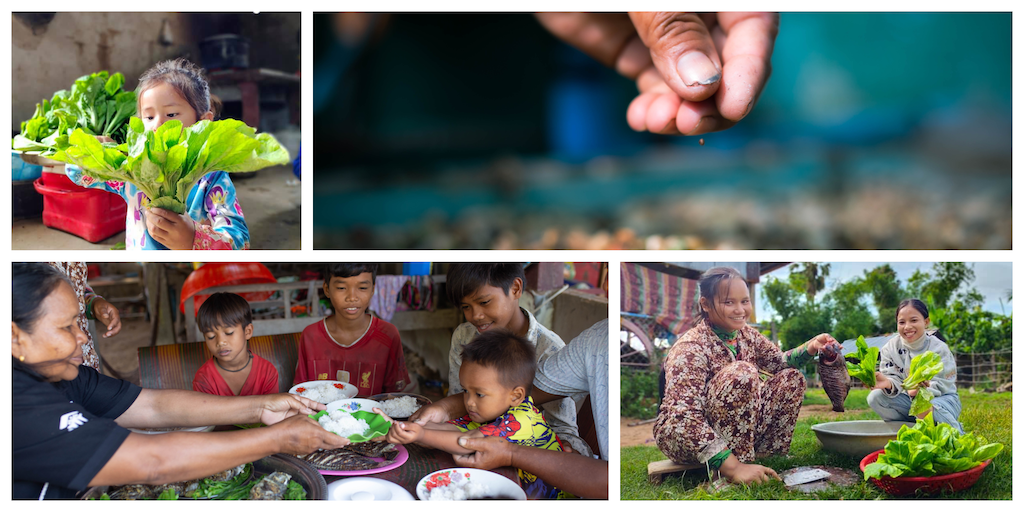
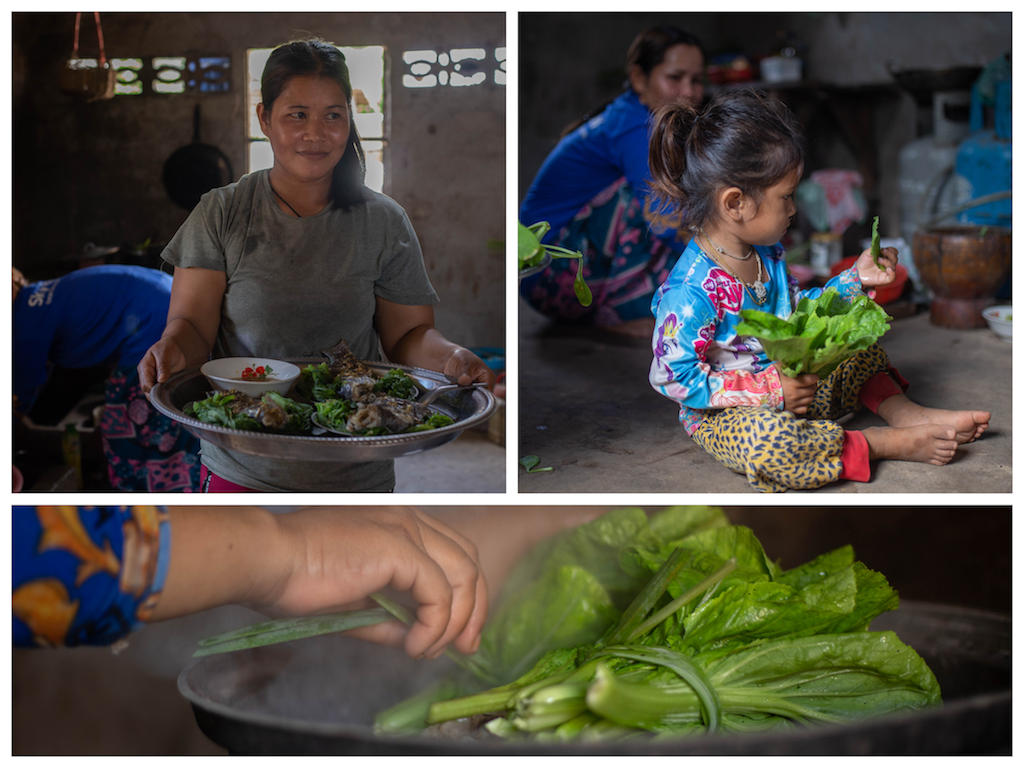

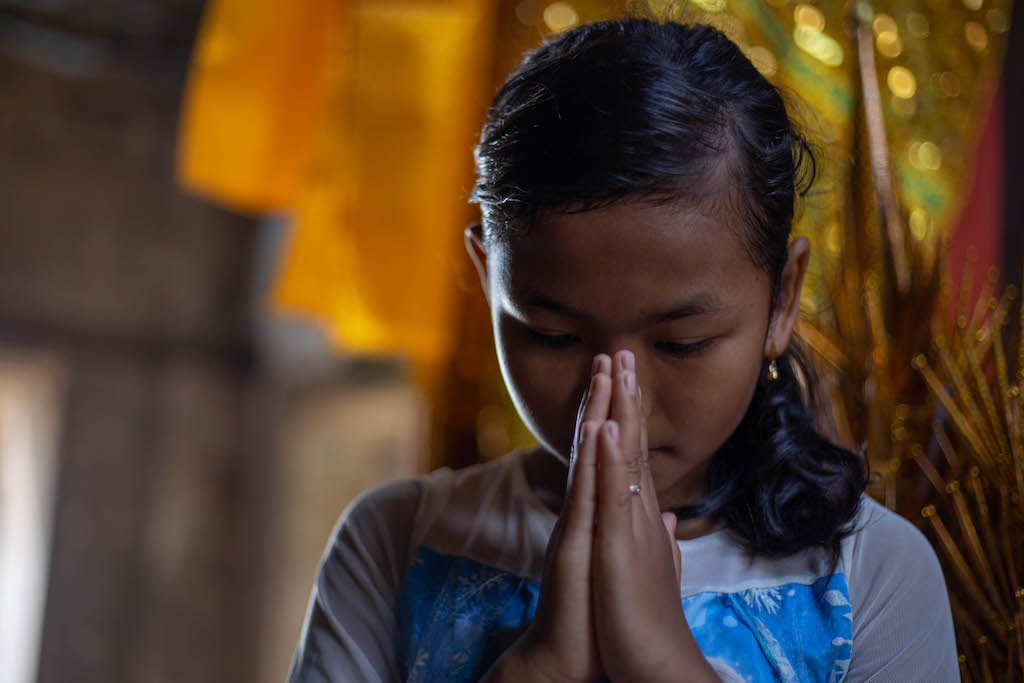

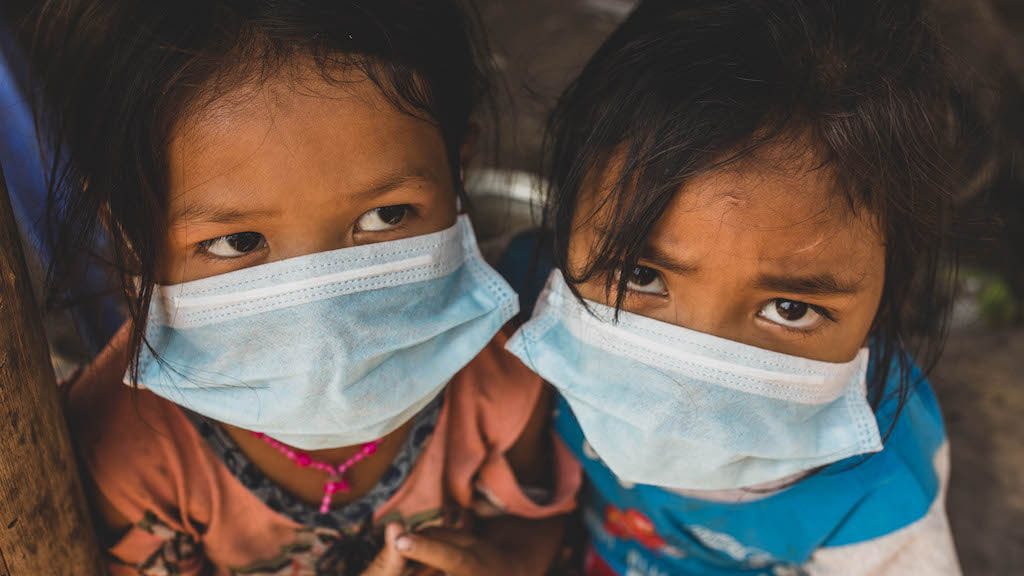
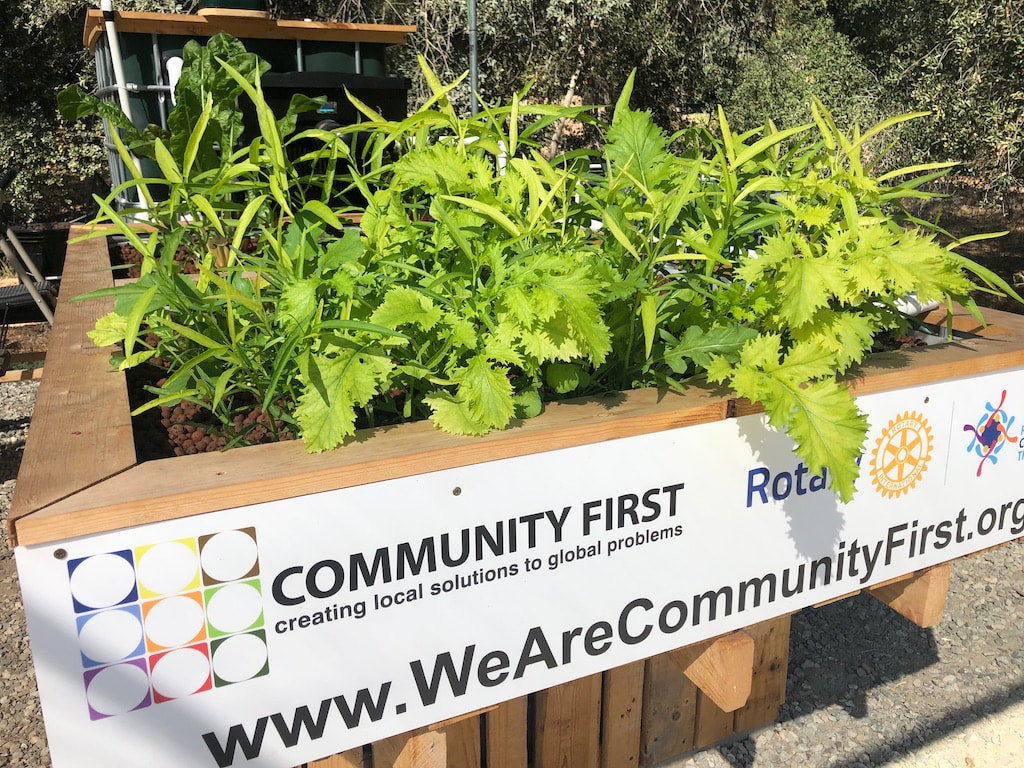
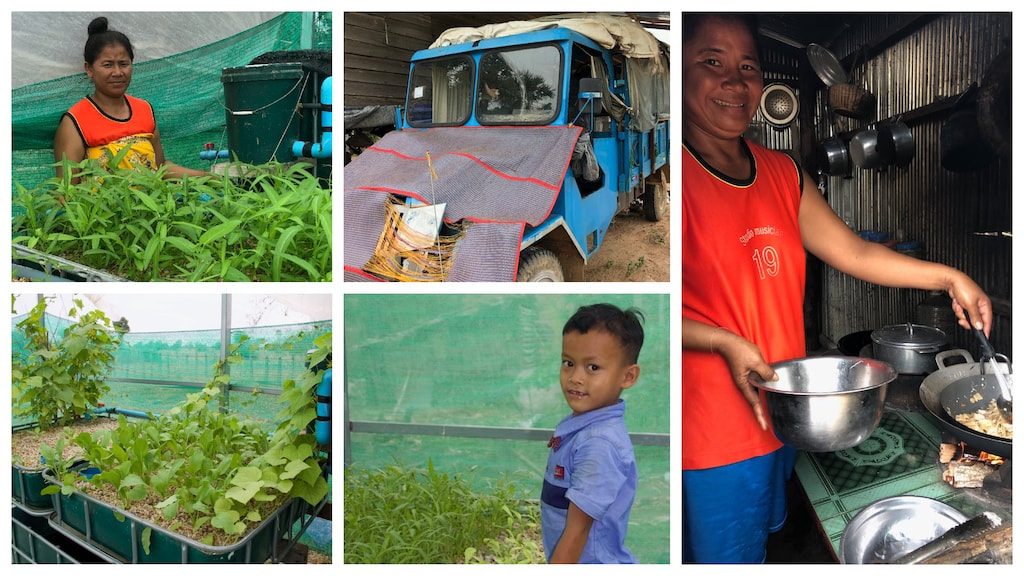
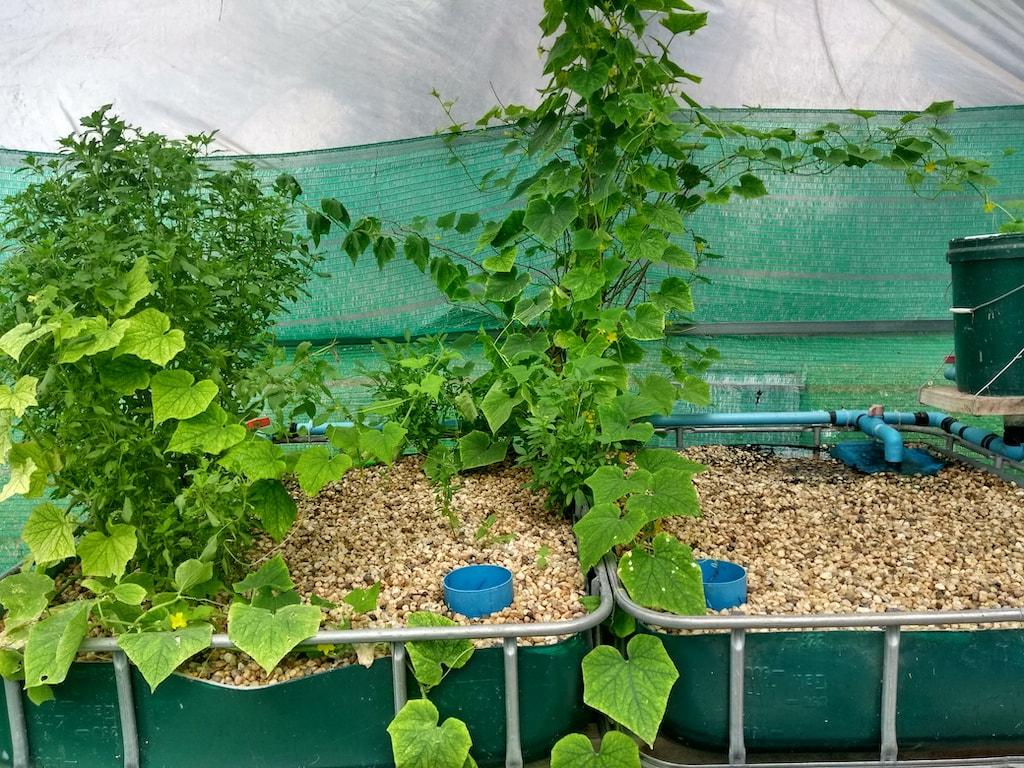
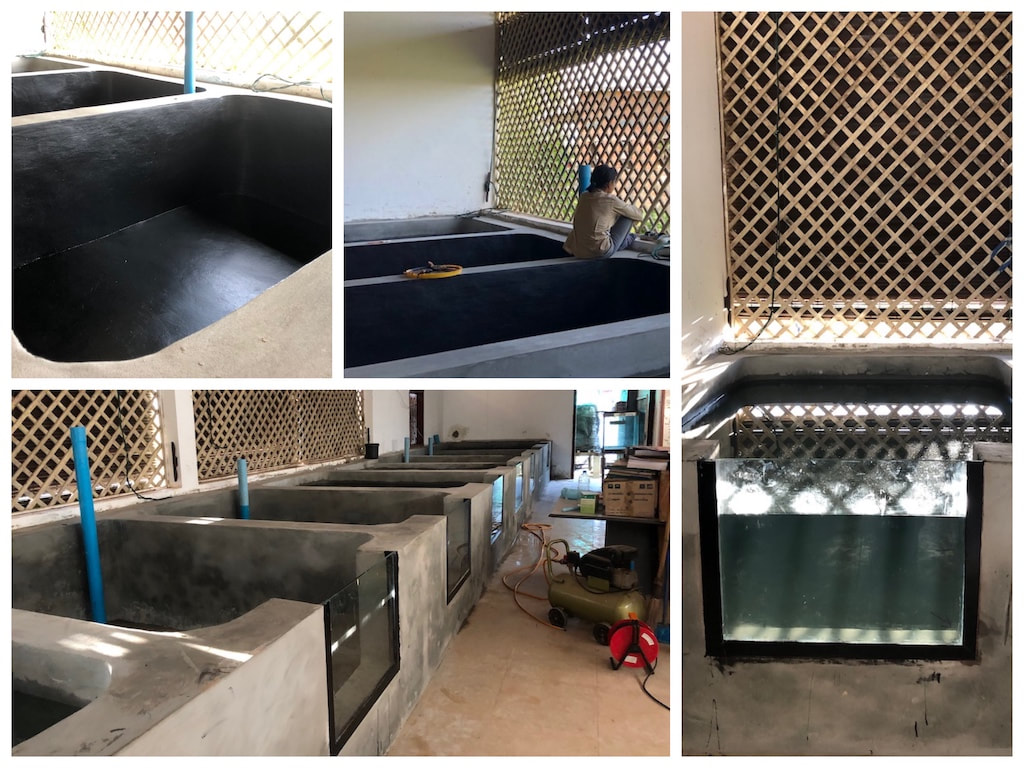

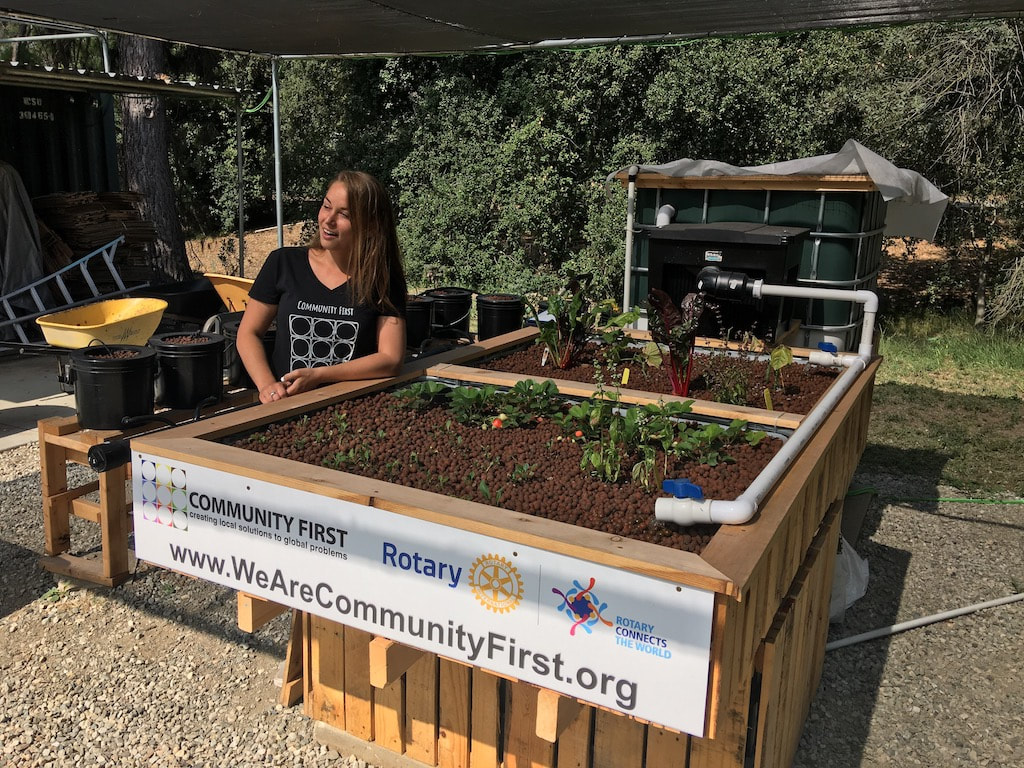
7/5/2024
0 Comments